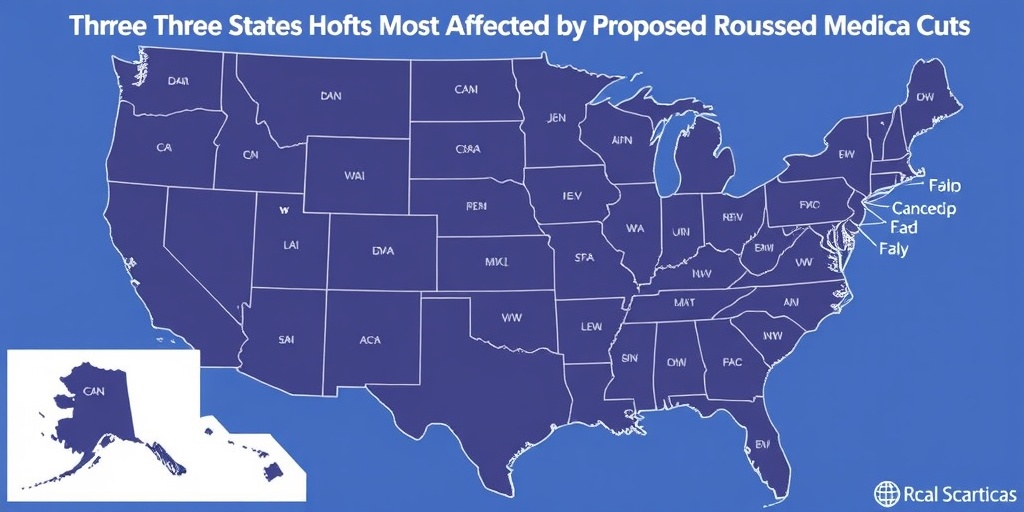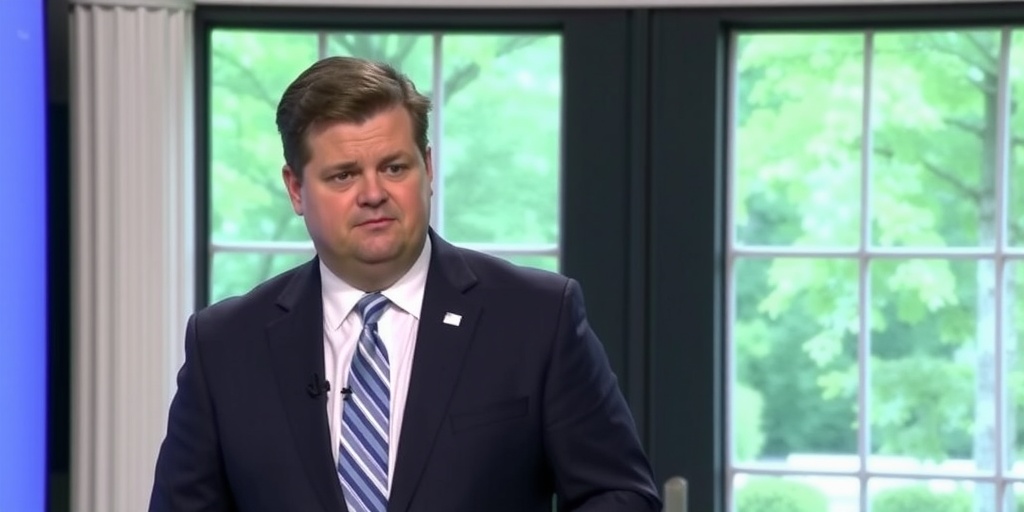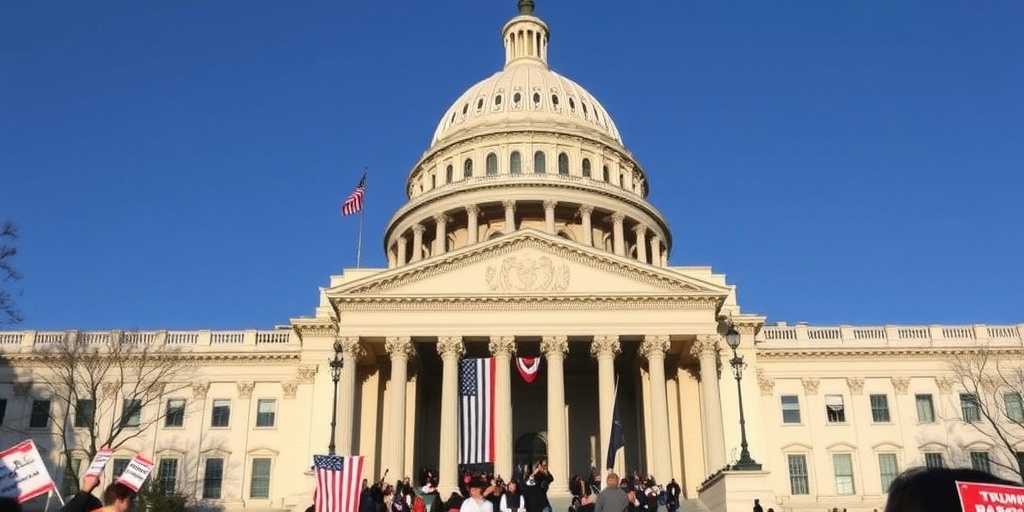Now Reading: Three States Most Affected by Proposed Medicaid Cuts
-
01
Three States Most Affected by Proposed Medicaid Cuts
Three States Most Affected by Proposed Medicaid Cuts

Potential Medicaid Cuts Could Place States in a Difficult Position
As congressional Republicans contemplate significant cuts to Medicaid, three states—South Dakota, Missouri, and Oklahoma—find themselves in a particularly precarious situation. These states have constitutions that mandate their participation in Medicaid expansion, a key provision of the Affordable Care Act that extended health coverage to millions of low-income adults.
The potential budget reductions being discussed could disproportionately impact these states. If Republicans move forward with cutting into Medicaid expansion, the remaining 37 states and Washington D.C., which currently support the program, may no longer cover working-class adults. Alarmingly, nine states have laws that would compel them to either halt Medicaid expansion or implement major changes should federal funding decline.
In contrast, South Dakota, Missouri, and Oklahoma lack the flexibility to easily adjust their participation in Medicaid. They face the challenging prospect of either amending their constitutions—a complex process that could take years—or discovering alternative funding solutions, likely necessitating cuts to other vital services or tax increases.
Recent years have witnessed voters in seven Republican-led states expand Medicaid through referendums, with three of those states amending their constitutions to solidify their commitment to the program. This approach was spearheaded by progressive activists aiming to protect Medicaid in regions previously resistant to the enactment of the Affordable Care Act. The goal was twofold: to extend health coverage to a broader population and to cement the responsibilities of Republican lawmakers in relation to Medicaid.
These constitutional amendments were successful, passing with substantial margins, which now positions these states as significant players in the ongoing debate over Medicaid at the federal level. Some conservative senators, including Missouri’s Josh Hawley, have voiced opposition to scaling back funding, suggesting that Republican senators from these three states could form an unexpected front against major Medicaid budget cuts.
Kelly Hall, the executive director of the Fairness Project, which played a pivotal role in the constitutional amendment campaigns, noted that expanding Medicaid in any location helps fortify it everywhere. As such, she anticipates that support for the program will strengthen in Washington, especially given its increasing importance to Republican voters in these states.
Currently, specific details regarding potential cuts remain unclear, yet congressional Republicans aim to finalize a comprehensive plan by the end of September. A recent budget resolution passed by the House proposed at least $880 billion in cuts to Medicaid over the next decade. If these cuts are entirely sourced from Medicaid, it would equate to an 11 percent reduction in federal Medicaid expenditure, leading to millions potentially losing their coverage. Meanwhile, the Senate passed its own budget proposal mirroring House figures but providing less clarity on the expected scope of spending cuts.
Proponents of these cuts argue that states are no longer contributing adequately to their Medicaid responsibilities. In recent years, the federal portion of Medicaid funding has risen from approximately 60 percent to more than 70 percent. This shift means the federal government now covers 90 percent of the costs associated with working-age adults qualifying through Medicaid expansion—an arrangement designed to alleviate pressure on state budgets during expansions.
States like Missouri, where Medicaid funding accounts for around 35 percent of the entire state budget, would face immense financial strain if the federal contribution were to decrease. Such a change would likely compel these states to raise taxes or curtail spending in essential areas such as education and infrastructure.
In the past, during attempts to repeal Obamacare in 2017, several Republican governors actively lobbied their senators to safeguard Medicaid. This resistance arose from awareness of the consequences that cuts to the program could have on state budgets and healthcare access. Since then, seven additional Republican-led states have expanded Medicaid, adding coverage for approximately 950,000 individuals.
Despite the success of ballot initiatives, some resistance persists from officials responsible for enacting the expansions. The former governor of Maine, Paul LePage, notably proclaimed he would rather face jail time than implement Medicaid expansion, though it was eventually put into place following his departure from office.
The activists behind these initiatives recognized the need for a more robust legal framework to protect Medicaid expansion, culminating in a strategic push for voter referendums aimed at embedding program participation in state constitutions. This initiative succeeded in Missouri and Oklahoma in 2020 and in South Dakota in 2022.
The activists’ efforts to achieve constitutional change entailed overcoming more significant hurdles, including gathering more signatures for ballot inclusion. Nonetheless, they deemed the additional challenge worthwhile to shield Medicaid in regions historically resistant to the program, thereby bolstering its standing in Washington.
The political climate within the Republican Party has notably shifted since 2017, with a move away from strict austerity advocated by the Tea Party toward a more working-class populism. Hospitals, increasingly reliant on Medicaid funding, have effectively conveyed these concerns to policymakers.
Brendan Buck, a former aide to Speaker Paul Ryan during the 2017 repeal effort, acknowledged the improvements in the current Medicaid system’s resilience compared to the past. Public sentiment might also sway Republican leaders to consider constituent opinions as a genuine threat if cuts proceed.
Despite his previous efforts to dismantle the Affordable Care Act, Senator Hawley has aligned with Democrats in proposing budget amendments to protect Medicaid. While these votes have been largely symbolic, they signal an evolving stance within the Republican Party, as they prepare for broader tax cuts and spending reductions.
Hawley expressed that his constituents decisively supported Medicaid expansion, highlighting that one-fifth of Missouri’s population relies on the program for health insurance.
While the senator indicated willingness to support work requirements for Medicaid, he firmly opposes cuts to benefits. His counterpart, Senator Mike Rounds of South Dakota, equally criticized proposals for reducing federal Medicaid funding, emphasizing that such measures merely transfer costs rather than alleviate them.
States or lawmakers across the political spectrum, even those in traditionally blue states that have expanded Medicaid through legislative processes, are bracing for the possibility of cutting coverage as a result of federal budget reductions. Similarly, many states have preemptively passed legislation that would automatically rescind Medicaid expansion in response to decreased federal funding.
Oklahoma, where federal Medicaid funding constitutes nearly 30 percent of its budget, is currently preparing for the potential financial fallout from major cuts. A conservative think tank in Oklahoma has already suggested reallocating funds from other Medicaid programs rather than affecting investments in schools and infrastructure.
However, experts warn that simply scaling back Medicaid services may not suffice to cover the gap left by potential federal funding losses. The options for states to reduce Medicaid spending are limited, with strategies primarily allowing cuts to specific services, like prescription coverage or insurance for postpartum women.
In South Dakota, legislators recently passed a law enabling potential alterations to the constitution that would permit withdrawal from Medicaid expansion if federal funding diminishes. Though this law does not immediately sever ties with the program, it grants the Legislature latitude to do so, pending voter approval through a planned ballot initiative in 2026.
Tony Venhuizen, a state legislator who sponsored the bill, expressed concern that the timeline might not align with the urgency of the situation, stating, "I’m worried it won’t be soon enough, but that is when our next election is. There isn’t another way."
As budget deliberations continue, the fate of Medicaid expansion for these states hangs in the balance, highlighting the broader implications of potential cuts for millions of Americans relying on the program for essential healthcare services.
Stay Informed With the Latest & Most Important News
Previous Post
Next Post
-
 01New technology breakthrough has everyone talking right now
01New technology breakthrough has everyone talking right now -
 02Unbelievable life hack everyone needs to try today
02Unbelievable life hack everyone needs to try today -
 03Fascinating discovery found buried deep beneath the ocean
03Fascinating discovery found buried deep beneath the ocean -
 04Man invents genius device that solves everyday problems
04Man invents genius device that solves everyday problems -
 05Shocking discovery that changes what we know forever
05Shocking discovery that changes what we know forever -
 06Internet goes wild over celebrity’s unexpected fashion choice
06Internet goes wild over celebrity’s unexpected fashion choice -
 07Rare animal sighting stuns scientists and wildlife lovers
07Rare animal sighting stuns scientists and wildlife lovers





















